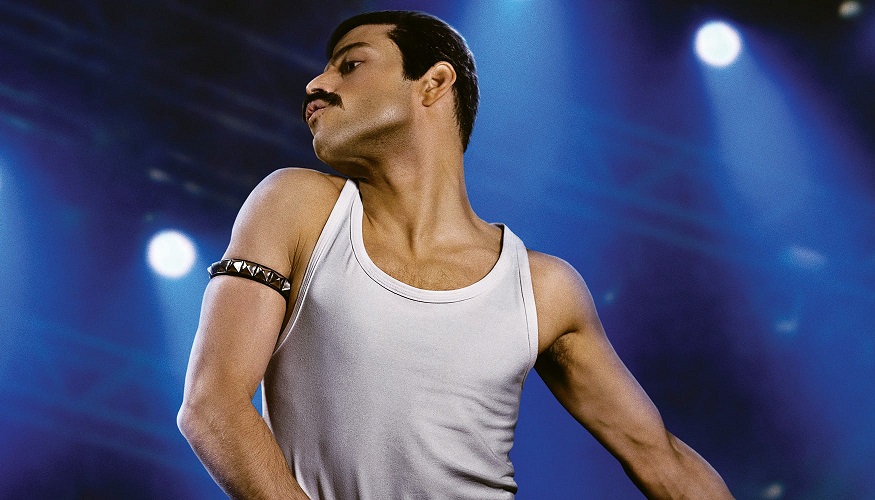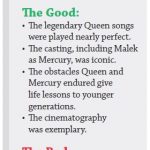‘Bohemian Rhapsody’ will rock you (boom-boom-clap) out of your seats
We’ve grown up loving the band Queen. Our parents nostalgically play hits such as “Another One Bites the Dust” and “Somebody to Love” time and time again, allowing our generation to feel love for Freddie Mercury and his equally as talented bandmates. The new film, “Bohemian Rhapsody,” sheds light on the struggles Mercury and Queen endured — including sexual and cultural identity, the repercussions of fame and wealth, and AIDS awareness.
The film follows Queen along their journey to stardom. Although it emphasizes the entire band, the focal point is frontman Mercury (Rami Malek from “Mr. Robot”) and his struggles. The film re-enacts how some of Queen’s most iconic songs were made — including “Bohemian Rhapsody” itself. These songs gave the band unlimited success but had dark consequences on Mercury that ultimately led to his unruly death.
The messages in the film are not only completely necessary, but also very representative of the lives of these stars. Mercury faced cultural identity issues, and his struggle with this is depicted throughout the film. Also known by his birth name Farrokh Bulsara, Mercury was a Parsi descendant that hid his Indian ethnicity from the world. Although his reasoning for doing so was not mentioned in the film, it was revealed that he struggled with his cultural identity enough that he chose to change his name to “Freddie Mercury.”
“Bohemian Rhapsody” was everything and more that Queen fans needed. Malek played an extraordinary embodiment of Mercury — with eery likeness — truly capturing the essence of the legend. In movies, especially ones like this, casting is so important, and they couldn’t have done it any better. Queen’s Brian May (Gwilym Lee), Roger Taylor (Ben Hardy from the “X-Men” series) and John Deacon (Joe Mazzello from “The Social Network”) did the late band’s tribute justice. From the kind Mary Austin (Lucy Boynton) to Mike Myers’ character of Ray Foster, the casting was on point and was the perfect match to re-enact these true events.
Out of all the positive aspects of this film, there was one main flop that left a small, sour taste in my mouth: the lack of acknowledgment of Mercury’s sexual identity. Although they touched on some of his struggles with his sexual identity (i.e., the Mary Austin story), they spent only a small portion of the film focusing on his gay lovers, including his long-lasting relationship with Jim Hutton (Aaron McCusker from “Shameless”). The movie touched more on his relationship with Austin than his gay partners. Freddie Mercury was more than just his sexual identity, but it was still a struggle he overcame that finally allowed him to be himself. It was disappointing, to say the least, that the movie barely touched on that aspect of his life.
“Bohemian Rhapsody” satisfied fans and shed light on some very important messages that Mercury and Queen itself dealt with. This movie was needed to show audiences, young and old, the life of one of the best rock bands of all time. Long live Freddie Mercury — long live Queen.








